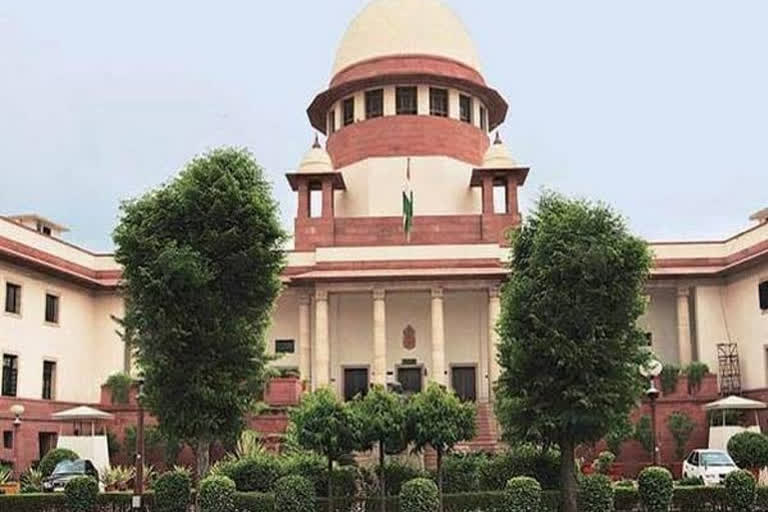New Delhi: The Centre on Wednesday informed the Supreme Court that there is no connection between the 'Chardham' road widening and the flash floods last week which claimed many lives in Uttarakhand.
Attorney General K.K. Venugopal, appearing for the defence ministry, contended before a bench headed by Justice R.F. Nariman that he needs some time to respond to the allegations made by the chief of an expert committee appointed by the top court citing the connection.
Venugopal submitted the letter from the chairman of the High-Powered Committee (HPC) that claims there is a link between the road widening and the Uttarakhand disaster. "But according to us, there is no such connection. We want to reply to the allegations and need time," said Venugopal before the bench also comprising Justices Hemant Gupta and B.R. Gavai.
Ravi Chopra, chairman of HPC, in a letter dated February 13 to the top court, had said the recent disaster in the Rishiganga valley took place in the region north of the Main Central Thrust (MCT), which is highly prone to landslides, flash floods and earthquakes.
"A section of the defence road to the India-China border and a bridge across the Rishiganga river on that road have been swept away, lending credence to our argument for disaster resilience in the region," said the letter.
READ: SC allows HP, MP to be made parties to plea against laws on conversion due to interfaith marriage
He added that he was compelled to write this letter to the Supreme Court in the light of the recent dam disaster in Uttarakhand's Chardham region.
Chopra in the letter added: "I am told that after the recent tragedy, the local residents are grateful for the Supreme Court's order of 2014 staying the 24 proposed projects. Had that stay not been given, three more under construction projects just upstream and downstream of the Rishiganga HEP would have manifold magnified the deadly flood impact."
Chopra added that the vulnerability and disaster proneness of this region is bound to increase with extensive disturbances like deforestation, slope cutting, blasting, tunnelling, damming of rivers, excessive tourism, etc. "The cumulative impact of such activities on the nearby glaciers cannot be ignored," said the letter.
On February 7, a glacier burst in the upper Himalayas led to massive flash floods in the Alakananda-Dhauliganga river systems in Uttarakhand, which led to deaths of over 50 people, with around 150 still missing.
The top court-appointed panel is monitoring the 900-kilometre Chardham highway project which aims to connect four Hindu holy towns of Yamunotri, Gangotri, Kedarnath, and Badrinath in Uttarakhand. The project is also deemed strategically important in the backdrop of the recent India-China military standoff on the LAC.
Chopra said the report submitted by him and two members strongly argued that disaster resilience is more critical than simply wide highways. "Several chronic landslide-prone locations and stretches, where the slope stability is precarious, exist on the three Chardham highways identified by the Ministry of Defence (MoD) as defence feeder roads. MoRTH data submitted to the HPC have identified 161 sensitive locations in 574 km (on NH-94 Rishikesh to Uttarkashi, NH-58 Rishikesh to Mana and NH-125 Tanakpur to Pithoragarh), about one location every 3.5 km," said the letter.
READ: PM Modi to address top military commanders in Kevadia in March
Chopra added that no convincing argument exists in the recent affidavit of the MoD to ignore and override the profound and irreversible ecological damage to the Himalayas that will impact each and every one of us and generations to come. The top court has granted two weeks to the government to come up with a response.
Last year, the Supreme Court ordered that the highway project, which was planned as a 10-metre wide road, can only be 5.5 metres wide. The Defence Ministry moved the top court citing the necessity of road widening for swift movement of armed forces and their equipment along the India-China border and it will also ensure better amenities for the locals. Of the 26 members of the court-appointed panel, 21 favoured road widening.
IANS



